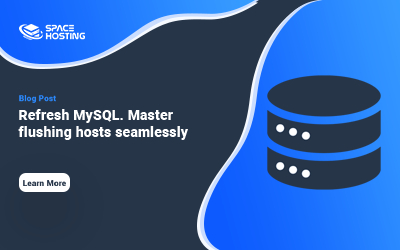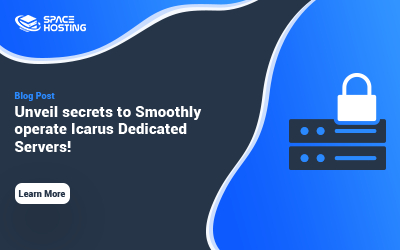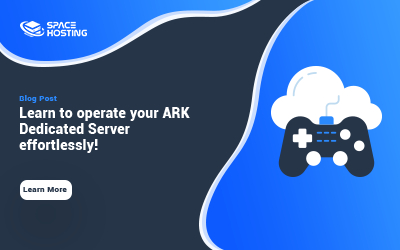Centralized vs Decentralized Hosting are two different approaches to hosting data and applications on the Internet. Centralized hosting involves storing data on a central server, typically managed by a hosting provider, while decentralized hosting relies on a network of distributed nodes to store and manage data.
Table of Contents
- What is Centralized Hosting?
- What is Decentralized Hosting?
- What are the Differences Between Centralized and Decentralized Hosting?
- What are the Pros and Cons of Centralized Hosting?
- What are the Pros and Cons of Decentralized Hosting?
- How Costly is Centralized Hosting?
- How Costly is Decentralized Hosting?
- Conclusion
What is Centralized Hosting?
A hosting system referred to as “Centralized Hosting” is one in which every resource, including servers, storage, and applications, is owned and controlled by only one organization, often a hosting company. Users may access all the data and apps over the internet under a centralized hosting model since they are kept in one place. An example of Centralized Hosting could be our Unmanaged VPS with cPanel or Directadmin VPS. Also simply hosting a Windows server on a VPS with Windows Server 2019 is considered as Centralized Hosting.
What is Decentralized Hosting?
What are the Differences Between Centralized and Decentralized Hosting?
There are two main methods for hosting programs and storing data: centralized hosting and decentralized hosting. The following are the primary differences between them:
Authority and Ownership
Centralized hosting includes a single company or organization holding control over the hosting infrastructure, including servers, programs, and databases. Hosting company such as Space Hosting decides how data is stored, secured, and accessible. Decentralized hosting, in contrast, spreads ownership and control over several network nodes, and no singular group has total control over the infrastructure.
Resilience and Scalability
Since all the resources are in one location, centralized hosting is easier to administer and grow. Yet security lapses and single points of failure are more likely to occur with it. In contrast, decentralized hosting is more reliable and safer because the data is spread among several nodes and there isn’t a single source of failure.
Cost
Because the hosting company handles all infrastructure and maintenance, centralized hosting may initially be less costly to set up and run. Decentralized hosting may involve greater initial setup costs due to the need to set up and upkeep network nodes. Yet, since there is no longer a need for a centralized hosting provider, decentralized hosting may eventually prove to be more affordable.
Privacy
As the hosting company has access to all the data kept on their servers, centralized hosting may raise privacy issues. Decentralized hosting can give more security and safety since data is protected and spread among numerous nodes, and no single organization has access to all the data.
In Conclusion, Decentralized hosting spreads authority and ownership over several nodes, whereas centralized hosting has a single organization owning the hosting system. While decentralized hosting is much more secure and robust, centralized hosting is simpler to operate and grow
What are the Pros and Cons of Centralized Hosting?
Centralized hosting has its advantages and disadvantages. The main pros and cons of centralized hosting are:
Pros
- Easy to manage: Centralized hosting is easier to manage since all the resources are in one place, and the hosting provider takes care of all the maintenance and infrastructure.
- Lower costs: Centralized hosting can be less expensive to set up and manage initially, as the hosting provider takes care of all the infrastructure and maintenance.
- Scalability: Centralized hosting can be easily scaled up or down to meet the changing needs of the organization.
- Technical Support: Centralized hosting providers offer technical support services, ensuring that any technical issues that arise are resolved quickly and efficiently.
Cons
- Single Point of Failure: Because all the resources are concentrated in one location, centralized hosting is more sensitive to one point of failure. The servers hosting all the apps and data may become unavailable if the hosting company encounters downtime.
- Security Concerns: Since every piece of data is kept in one place, centralized hosting may provide security concerns. All the data kept on the servers may be at risk if there is a cyberattack or security breach.
- Restricted Control: As centralized hosting companies have entire control over the infrastructure, an organization’s ability to store, secure, and access its data is restricted.
- Restricted Customization: Since they offer a uniform service to numerous clients, centralized hosting companies may have few choices for modification.
What are the Pros and Cons of Decentralized Hosting?
Hosting that is decentralized offers benefits and drawbacks. Decentralized hosting’s pros and cons are:
Pros
- Excellent Security: The data is dispersed over numerous nodes and there is no single point of failure, decentralized hosting offers superior security. The data may still be accessible from other nodes even if one node fails.
- Data Privacy: As the information is secured and dispersed over several nodes, nobody has access to all the data, and decentralized hosting can offer more security and confidentiality.
- Additional Control: Decentralized hosting spreads control and ownership over several network nodes, allowing users to have more control over both their data and the infrastructure.
- Scalability: To adapt to the organization’s changing demands, decentralized hosting may be simply scaled up or down.
Cons
- Technical Difficulty: As decentralized hosting involves establishing and looking after nodes in a network, it might be more difficult technically to set up and maintain.
- Less technical Help: Since users oversee maintaining their nodes, decentralized hosting cannot provide the same degree of technical assistance as centralized hosting.
- More Expense: As establishing and maintaining nodes for a network is necessary for decentralized hosting, the initial cost of setup may be higher.
- Minimal Customization: Because decentralized hosting operates on a decentralized network, there may be few possibilities for customization.
How Costly is Centralized Hosting?
A number of factors, such as the hosting company, the kind of hosting service, the number of resources needed, and the length of the hosting service, can have a significant impact on the cost of centralized hosting. In general, monthly costs for shared hosting plans vary from $3 to $10, those for VPS hosting from $20 to $80, and prices for dedicated hosting from hundreds to thousands of dollars. The price of centralized hosting may also rise in accordance with the addition of further services and features like security, backup, and support. To discover the best value for your money, it’s essential to assess the costs offered by different suppliers and take into account the unique requirements of your application.
How Costly is Decentralized Hosting?
The price of decentralized hosting may differ based on the hosting platform used, the quantity and quality of resources needed, and the length of the hosting contract. With pricing starting at only a few cents per gigabyte per month, decentralized hosting systems like IPFS and Storj usually charge based on the amount of storage and bandwidth consumed. Moreover, the price of decentralized hosting may be influenced by the platform’s network fees, which fluctuate according to network demand and blockchain congestion.
Although decentralized hosting can offer more security and privacy, it may not always be the most economical choice when compared to centralized hosting, it is crucial to keep this in mind. Decentralized hosting services are still in the early stages of development thus, their functionality and pricing may vary. It’s critical to investigate and contrast several decentralized hosting platforms to pick the one that offers the greatest value for your requirements.
€ 37.39/mo
Conclusion
In Conclusion, centralized and decentralized hosting are two distinct techniques for hosting data and applications on the Internet. Decentralized hosting is a more recent approach than centralized hosting, which depends on a network of dispersed nodes to store and manage data. Centralized hosting is a typical model where data is saved on a single server owned and maintained by a hosting provider.
A wide range of advantages, including simplicity of use, scalability, and a variety of features and services, are provided by Space Hosting in Centralized Hosting. It may, however, also be more prone to safety failures, data loss, censorship, and spying.
While decentralized hosting is more secure, private, and resistant to censorship than centralized hosting, it can also be more difficult to set up and may provide fewer features and services.
The decision between centralized and decentralized hosting ultimately comes down to the particular requirements and goals of the project or application. It’s critical to thoroughly weigh the benefits and drawbacks of each strategy before selecting the best option for your specific use case.




0 commenti